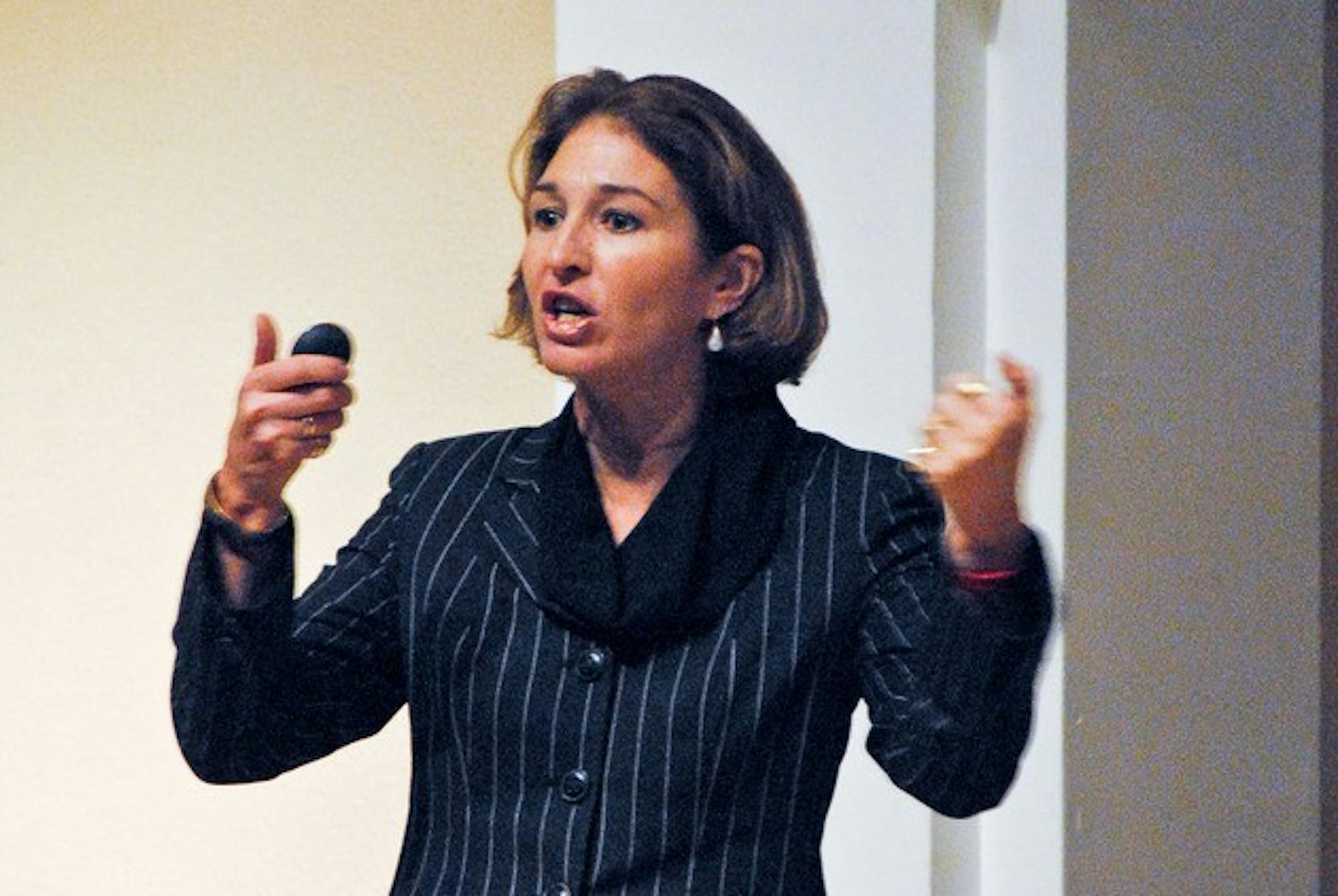During the Cold War, the world was "very different" from the world in which students live today, Slaughter, who served as director of policy planning for the United States State Department from 2009-2011, said.
"The world was politically bipolar, and global power was divided between two competing states the United States and the Soviet Union," she said.
Since the demise of the Soviet Union and the subsequent end to the Cold War, however, countries have become more reliant on one another and the connections between various nations have become increasingly "dynamic," Slaughter said.
"Today's world can be described as Lego World," she said. "Everything is connected and can be disassembled and reconnected with countless permutations."
The 21st century has marked a change from "top-down" power structures to "bottom-up" power structures, according to Slaughter. While top-down institutions that maintain order through coercion are eventually constrained by their own agendas, "bottom-up" structures allow for cooperation and invite "participation without constraints" for citizens in governments' decision-making processes, she said.
Social media has allowed these bottom-up power structures to become more effective in recent years, Slaughter said. Pointing to a timely online post by an Egyptian blogger who identified social media as an integral part of organizing protests during the Arab Spring, Slaughter explained that networking sites constitute an important part of organized popular dissent.
"Prior to the advent of social media, you had to organize physically," she said. "Things would get shut down by the government before you could build a node and a network."
Slaughter also discussed the roles that Dartmouth students can play in local and global activism and stressed the individual activists' increased responsibility in the 21st century.
"Things governments traditionally do are now in your hands," Slaughter said. "You increasingly have the tools to be able to do something about it, you only need the awareness that you can lead."
Slaughter also encouraged listeners to be original in their activist efforts.
"Build local, then go global and change the world," she said.
Although it was open to campus, the lecture was geared specifically to members of the Class of 2015 participating in the Great Issues Scholars Program. The program which offers first-year students opportunities to participate in discussions related to international relations through lectures, conferences and trips centers around the issue of security this fall but will focus on different themes each term.
Students who attended that lecture said Slaughter was both interesting and thought-provoking.
"I thought it was great that Dartmouth brings people like her here to campus and gives us the opportunity to communicate with them," Georgi Klissurski '14, a Great Issues Scholars Program mentor, said.
Slaughter's topics were especially relevant for Dartmouth students interested in working abroad, according to Klissurski. "This even definitely would have been useful to people interesting in going into the foreign service," he said. "Many of the concepts she brought up were immediately applicable to international relations classes here at Dartmouth, and her observations were really insightful."
Various students interviewed by The Dartmouth pointed to Slaughter's description of current power structures as a Lego World particularly relevant to geopolitical issues in the 21st century. "Our current bureaucracy is mosaic in that it's built of different lego pieces," Great Issues Scholars Program mentor Lidia Valds '14 said. "I believe she was discussing U.S.-Israeli relations and talking about how different levels of our bureaucracy have more ties to their Israeli counterparts than to peer groups within our actual organizational hierarchy."




